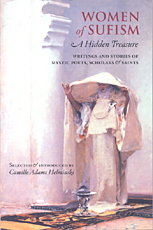"And I realized, as I was giving this lecture, why Muslims always say, 'All praise is due to God' whenever they are asked how they are and especially in adversity. I, too, realized that I was overwhelmingly blessed to be given 'this,' not a broken finger, but the full trial. And suddenly I loved my illness; I thought, 'God thought I was up to this!' And when I loved it, it was like flowing with the Divine Will — my fingers started to move, and then bit by bit, [the paralysis] came undone. So it showed me very clearly: love your trials, welcome them, really say Alhamdulillah (Praise be to God), Hallelujah, for every trial you are offered, because in them is the greatest benefit.
The spiritual guidance I received at the time was: 'God doesn't give us what we deserve. None of us deserve the goodness we have received in this life. Do any of us deserve the blessings we have been given? Do any of us deserve the kinds of trials we have been provided? God doesn't give us what we deserve; God gives us exactly what our souls need to return to the Divine Presence with hearts purified.' And suddenly I really understood for the first time how trials and blessings are the same thing. We have all been taught this; we all know that our heart should be equal in its reactions to what seems to be good or bad news. You know it, you've read it; but finally I 'saw' it — that it is true. At heart, all religious guidance teaches us to trust the Lord, and when either joy or suffering arises, we should in both cases remain centered and steadfast, residing in our hearts unmoved, bearing silent witness — at one with and loving God's Will for us — and looking for the ways each event is a blessed opportunity for the practice of the true nobility we — without our distracted egos — are. Little by little we really can become increasingly equal of heart in both trials and joys; we can become 'the child of the moment.' "
